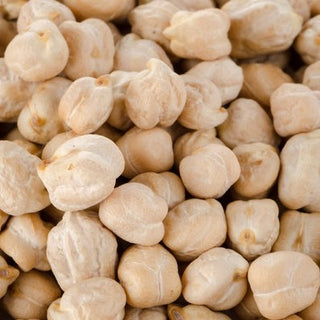Horses and Chickpeas: An Unexpected Snack
Chickpeas, also known as garbanzo beans, are a type of legume that offers numerous health benefits. Rich in proteins, fiber, vitamins, and minerals, chickpeas have been a staple in human diets for centuries. But are they a suitable snack for our equine friends? Let's find out.
The Nutritional Value of Chickpeas
The nutritional value of chickpeas is undeniably impressive, making them a healthy addition to most diets.
Chickpeas are an excellent source of plant-based protein, dietary fiber, and a number of essential vitamins including folate (vitamin B9), which is crucial for red blood cell formation and proper brain function. They also contain a good amount of Vitamin B6, supporting brain health and mood regulation, and a decent amount of Vitamin C, which aids in immune function and iron absorption.
Chickpeas also contain various essential minerals like iron, magnesium, phosphorus, zinc, copper, manganese, and molybdenum. Iron is essential for oxygen transport in the body, magnesium is important for bone health and nerve function, phosphorus is crucial for energy production, while zinc, copper, and manganese are vital for immune function and antioxidant activity. Molybdenum, although required in trace amounts, helps in the detoxification of harmful sulfites.
However, while these nutrients are beneficial for humans, horses have a different nutrition profile and should have a diet that mainly consists of forage like hay and grass. Chickpeas contain a significant amount of starch, which can be problematic for some horses. Starch needs to be broken down in the small intestine, but if the amount of starch exceeds the small intestine's processing capacity, it will reach the hindgut undigested. This could lead to an imbalance in the gut flora, potentially resulting in colic or laminitis.
Can Horses Eat Chickpeas?
In principle, horses can eat chickpeas. and in some parts of the world, chickpeas are fed to horses on a routine basis. However, like with any other food item that isn't a regular part of a horse's diet, introducing chickpeas should be done slowly and cautiously. One critical thing to remember is that chickpeas should be well-cooked or soaked to make them easier to digest.
Introducing Chickpeas to a Horse's Diet
Considering their starch content, chickpeas should only be given as an occasional treat and not as a regular part of a horse's diet. Start with small quantities and observe your horse for any changes or discomfort.
The Process of Preparing Chickpeas for Horses
Chickpeas should never be given to horses raw. They need to be soaked for at least 12 hours and then thoroughly cooked to break down the complex proteins and starches, making them easier for the horse to chew and digest. There are several good recipes for incorporating chick pea snacks we found on Facebook that include a mixture of salt and other grains.
A Novel Snack, but not a Staple
Chickpeas can indeed be a novel snack for horses, but due to their high starch content, they should never become a staple in their diet. As always, when introducing new foods to your horse's diet, start slow, monitor closely, and consult with your vet if you notice any adverse reactions.


Melyni Worth
Hi Gordon, unfortunately we cannot respond directly to blog comments because the website doesn’t allow us to. Please send me an email and I’ll answer there.
Gordon Moore
I want to add Chickpea to my mixed feed solution, as ground feed, in the ratios below: Do you see any problems with this mix?
Corn – 39%, Oats – 39%, Soybean Mean – 7%, Wet Molasses 7%, cracked chickpeas – 6 , and salt+minerals – 2.
Please advise.